Where Prostitution is Legal or Illegal in Japan?
 |
| Prostitution in Japan: Legal or Illegal |
| Table of Contents |
Does Prostitution Have Legal Status in Japan?
Adult services in Japan are well-known for their variety and availability. However, prostitution is illegal in Japan under Article 3 of the Anti-Prostitution Law, which defines it as having sexual relations with an unspecified person in exchange for money.
However, due to the law's definition, all types of sexual intercourse-like acts are legal, and those who engage in them face no penalties.
Japan's sex industry is vast and complex, with many businesses operating legally by providing services other than vaginal intercourse.
In 2022, soliciting customers was the most common violation in the Japanese sex industry, accounting for 236 arrests.
The Japanese Prostitution Prevention Law, enacted in 1956, prohibits sexual intercourse for a fee. While prostitution is officially illegal in Japan, the domestic adult entertainment industry used legal loopholes to circumvent the ban, such as offering non-coital services or sexual acts that are not legally defined as "intercourse."
Adult entertainment businesses include adult-only bathhouses, strip clubs, massage services, love hotels, and video and phone-based services.
Is Prostitution Legal in Japan?
Read more: 15 Countries With The Legalized Prostitution That Visitors Must Know (Update)
Do you Face Arrest in Japan for Utilizing Prostitution Services?
According to Article 2 of the Anti-Prostitution Law, "prostitution" is defined as "having sexual relations with numerous and unidentified persons for payment or with the expectation of receiving payment."
Though prostitution and being a client in the manner mentioned above are illegal, they do not automatically lead to an arrest or other consequences. This is due to the fact that the legislation is predicated on the idea that people who become prostitutes ought to receive welfare assistance rather than face criminal penalties.
The definition of prostitution includes the requirement for a "unspecified partner," so even if someone is paid and has sex with a "specified partner," such as a mistress or lover, it does not qualify as prostitution.
Prostitution or being involved in prostitution itself is illegal, but it is not punished. The law was dubbed a "rough law" when it was initially passed. There have been far fewer people punished by this law in recent years as a result of changes in sexual awareness and prostitution practices. Acts that encourage prostitution, on the other hand, are illegal. These include requesting prostitution in a way that is visible to the public, lending money in advance or providing funds for prostitution, entering into a contract to engage in prostitution, and running a prostitution business (managed prostitution).
Prostitution is not the same as "sex-related special business" (also known as the "sex industry") in Japan. This is due to the fact that prostitution is defined by Japanese law as "having sexual intercourse with an unspecified partner for compensation or with the promise to receive compensation" (although acts that are similar to sexual intercourse are not included in this definition).(Article 2 of the Anti-Prostitution Law), the majority of sex establishments supposedly only offer services that don't involve sexual activity or acts that resemble it.
In Pink Box: Inside Japan's Sex Clubs, author Joan Sinclair observes that, ironically, the Japanese sex industry provides "everything imaginable except sex."
The Anti-Prostitution Law defines prostitution as "having sexual intercourse with many and unspecified persons for compensation." This definition allows for the interpretation that selling a variety of sexually oriented activities, including acts that are similar to prostitution, is legal and is not punishable by the law.
Read more: List of 84 Countries Where Prostitution Is Legal 2024 (Totally or Partially)
Arrest and Penalties for Prostitution in Japan Today
Even if they are apprehended by the authorities, there is no legal repercussion. Normally, the police would merely "provide them with guidance."
The Anti-Prostitution Law prohibits prostitution. However, prostitution will not result in punishment for the individual involved because it is viewed as a vulnerable position that needs to be protected.
On the other hand, prostitution is illegal, and one will be arrested if they participate in or provide a venue for prostitution.
(Entreprises that are accused of having "managed women for prostitution," "provided a place for prostitution," etc., are targeted by the Anti-Prostitution Law.)
Even if the other party consents, one may be charged with child prostitution under various laws if they pay someone under the age of 18 to perform sexual acts, etc.
Prostitutes and their customers may face penalties under the Anti-Prostitution Law if they participate in illicit sexual activities. In Japan, prostitution carries the following penalties:
→ For prostitutes: A fine of up to 100,000 yen (about $900) or up to six months of imprisonment.
→ For clients: A fine of up to 100,000 yen or up to one year of imprisonment.
→ For pimps and brothel owners: Up to three years of imprisonment and a fine of up to 300,000 yen (about $2,700).
Even with these fines, the Anti-Prostitution Law is not strictly enforced. While many other forms of sex businesses continue to operate with little interference, police typically target visible forms of street prostitution and brothels. The Japanese legal system is also rife with corruption; some police officers have been known to take bribes from those running the sex industry in exchange for protection.
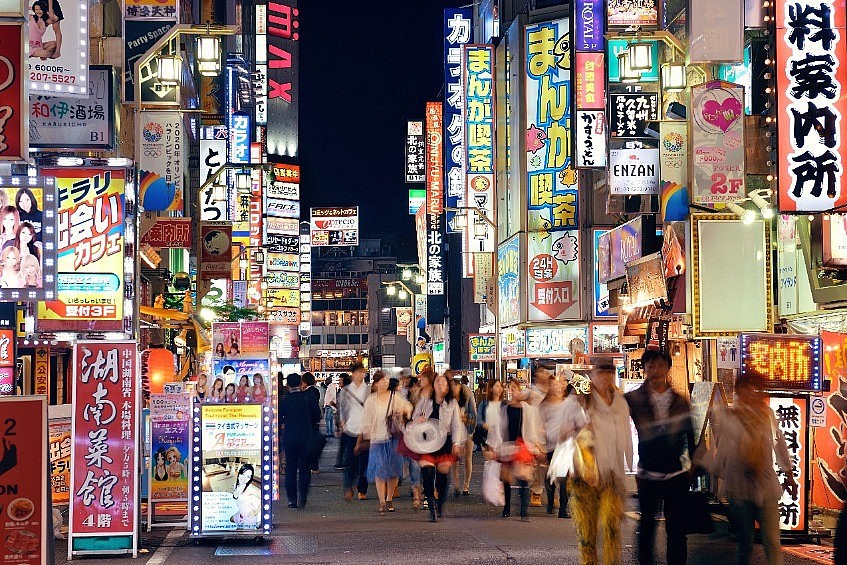 |
| What is the legality of prostitution in Japan? |
| The Tokyo Metropolitan Police Department is best known for its massive crackdown on prostitution in October 2023, which resulted in the arrest of at least 80 people who were allegedly involved in prostitution while out on the streets. Japan's Anti-Prostitution Law will be changed starting in April 2024. The intention is not to deter prostitution but to assist women. |
Red Light District in Tokyo
Located in Shinjuku, Tokyo, Kabukicho is Tokyo's biggest traditional red light district and one of Asia's biggest adult entertainment hotspots.
There are many different places to eat, comic book stores, karaoke venues, bowling alleys, movie theaters, and more in this vibrant neighborhood. But what distinguishes these businesses is how they are positioned specifically in the legal system. They operate in a legal gray area because, although they don't state it clearly, they strongly imply that they are providing sexual services.
There is an unwritten agreement that governs this fascinating gray area to some extent. Even though these establishments might not officially transgress certain legal boundaries, they are cognizant of the needs and preferences of their clientele. Although unofficial, this mutual understanding keeps these establishments alive and well-liked, offering a covert means of adult entertainment.
Japan's red light district attracts a lot of visitors. But the main reason people come here is to find strange feelings, particularly the best sexual services in the world.
A total of 400 stores sell various types of sex toys. Ninety hotels, over three hundred small and large clubs, and hundreds of bars and restaurants are located nearby. Many people come to this red light area every day to rent a stay.
 Where Prostitution Is Legal In Nevada Where Prostitution Is Legal In Nevada |
Advices for Foreign Visitors Exploring the Red Light District in Japan
Be careful with the listed price
Price, like any other aspect of commerce, is an important consideration when deciding which type of service to use in this red light district. A price will be determined based on the scale, type of service, and quality of the male and female hostesses. Low-cost services, such as chatting with no physical contact, will be less expensive than other types of "the flesh" services. You must agree on a price before using the service.
Don't be fooled
If you visit the red light district for the first time, be wary of being "cheated" by touts. Perhaps at first, these scammers offer an appealing price to get you into a specific bar or club, but when it comes time to pay, the price is "sky-high". If you have no prior experience paying fees, you are more likely to be scammed and lose money. Be wary of the reasons that scammers provide, such as surcharges for new users, membership fees, and so on. Make absolutely no compromises. To avoid future consequences, it is best to agree and ask before participating.
For Japanese speakers only
One of the reasons foreigners who visit the red light district are the most likely to be scammed is due to the language barrier. Even if you speak English, you will be unable to communicate here. It is difficult for a foreigner to enter a bar or club in the red light district. It is best to bring someone who speaks Japanese with you.
Underworld in Japan
Perhaps you didn't realize that prostitution is illegal in Japan.
You will also be arrested if there is any prostitution activity. You may therefore wonder what men who check into hotels in the red light district are doing there.
Hoteliers will negotiate with prostitution. It must be kept a secret by patrons and hostesses that the sexual activity takes the form of loving couples, not prostitution.
Brothels hidden in public bathrooms in Japan
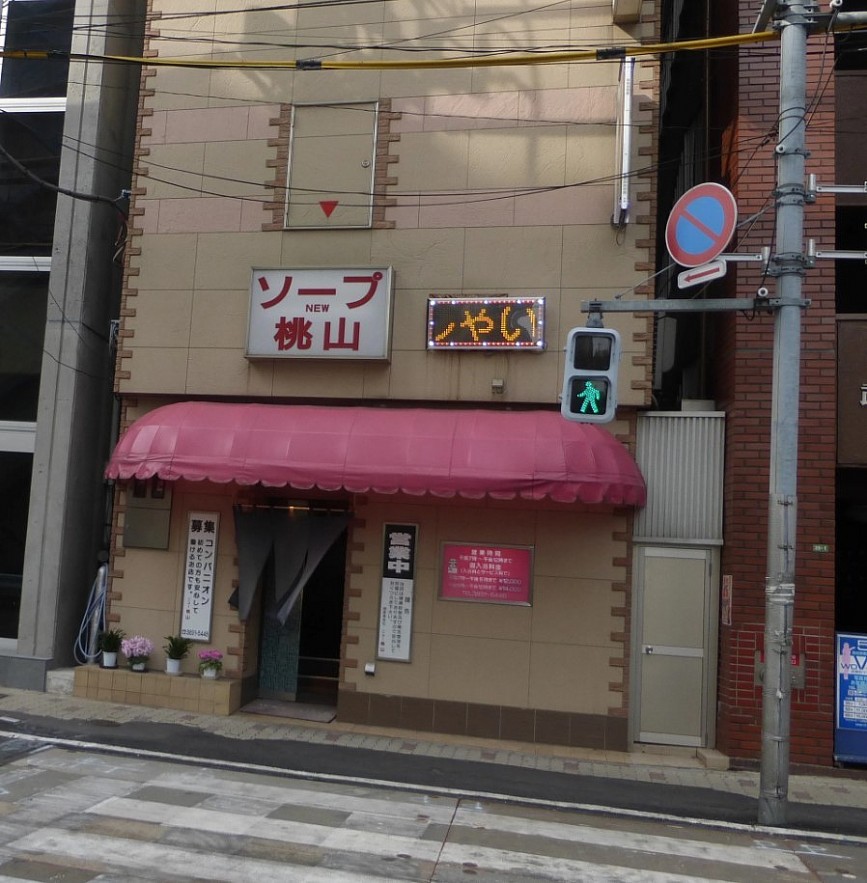 |
| Outside a "soap brothel" in Tokyo |
Under the legal guise of private bathrooms, "soap brothels" in Japan have long engaged in illegal prostitution.
In Tokyo's red light districts, you may be invited to brothels using cards that list all services and prices. Binta refers to patting the face, hizamakura to lying on the prostitute's lap, and manual stimulation and oral sex are also included.
Honban, or vaginal intercourse, is not a service that is offered. The Anti-Prostitution Act, passed in Japan in 1958, made it illegal.
Men, on the other hand, claim that they can find that in "soap brothels". In fact, services are never listed in full. Only customers and staff have control over what happens in private rooms.
FAQs About the Prostitution in Japan
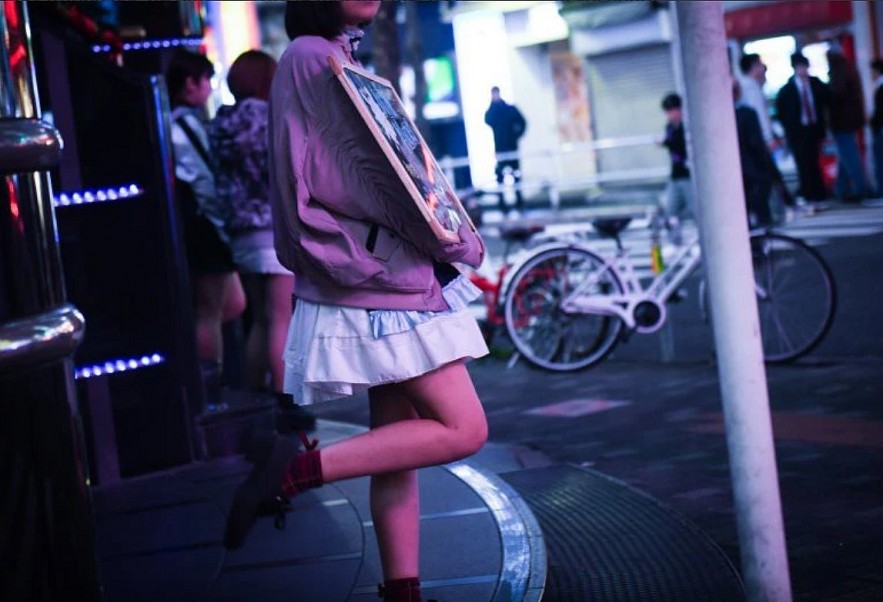 |
| Prostitution in Japan still thrives despite being illegal |
What are the Mediation Acts of Prostitution?
Prostitutes are not punished even though the Anti-Prostitution Law forbids it; instead, those who engage in prostitution are seen as being in a needy situation and need assistance.
On the other hand, someone who aids prostitution by, say, offering a location for it will be taken into custody. As a result, those who provide a venue for prostitution are the target of the anti-prostitution law. Regardless of whether the other person consents, a person who performs sexual acts with a minor may face charges of prostitution under various laws.
In Japan, how is prostitution referred to locally?
Prostitution (売春, baishun) is not a term commonly used in casual conversations in Japan. Rather, the term "water trade" (水商売) is frequently used to refer to the sex industry. This word refers to a broad category of establishments that provide adult entertainment, such as massage parlors, hostess clubs, and soaplands (bathhouses that provide sex services).
Additionally, the term "jōrō" (娼婦), which has a more neutral connotation than "prostitute," is commonly used to refer to sex workers in Japan.
What is the History of Prostitution in Japan?
In Japan, the practice of prostitution dates back to the Heian period (794-1185). Shirabyōshi (白拍子) were female attendants employed by samurai and high-ranking courtiers who catered to their sexual and artistic needs.
Prostitution expanded during the Edo period (1603–1868) in Tokyo, leading to the development of red-light districts like Yoshiwara. These districts served as a source of tax income and were subject to government regulation.
What Government Laws and Resources Address Prostitution in Japan?
The government of Japan has a number of resources and laws that deal with the problem of prostitution:
Anti-Prostitution Law (1956): This law punishes pimps, clients, and prostitutes alike and makes prostitution a crime. Its limited definition of prostitution, however, permits many sex businesses to function lawfully.
Entertainment Businesses Law: This law governs companies that offer entertainment services, including venues that host adult entertainment. These companies must apply for a license and follow rules about things like age limits and closing times.
Japanese Ministry of Health, Labour, and Welfare: This government organization is in charge of enforcing relevant laws and regulating the sex industry. Additionally, it offers assistance and resources to sex workers who want to leave the field.
Non-governmental organizations (NGOs): In Japan, a number of non-governmental organizations support and promote the rights of sex workers. These groups offer healthcare, counseling, and legal aid, among other services.
Conclusion
Since the Anti-Prostitution Act was passed into law in Japan in 1956, prostitution has been prohibited. The sale and purchase of sexual services are expressly prohibited by this legal framework.
However, the environment surrounding prostitution in Japan is defined by a convoluted web of laws and customs. Notable legal ambiguities and gaps have made it possible for some types of prostitution to operate openly.
It would be accurate to characterize the Japanese government's response to these actions as ambiguous. Even though prostitution is prohibited by law, authorities usually place more emphasis on regulation and control than total eradication. There are recurring crackdowns on unlicensed or illegal establishments, frequently involving raids and the application of current laws. As a result, prostitution in Japan is allowed as long as it stays within the confines of the country's existing legal system, creating a legal gray area.
Prostitution is a problem in Japan, and efforts to address it are hampered by a lack of comprehensive legal regulations, corruption, and lax enforcement.
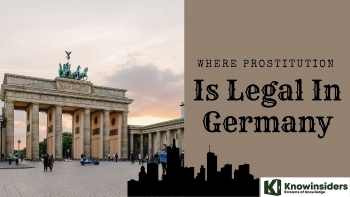 Where Prostitution Is Legal In Germany Where Prostitution Is Legal In Germany Throughout German history, prostitution was never criminalized and was widely accepted into mainstream culture. |
 Where Prostitution Is Legal In France Where Prostitution Is Legal In France Prostitution in France (the exchange of sexual acts for money) was legal until April 2016 and illegal now. |
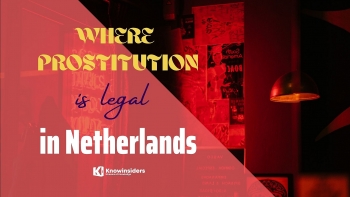 Where Prostitution Is Legal and Illegal In Netherlands Where Prostitution Is Legal and Illegal In Netherlands Prostitution in the Netherlands (the exchange of sexual acts for money) is legal and regulated. Operating a brothel is also legal. Keep on reading to ... |
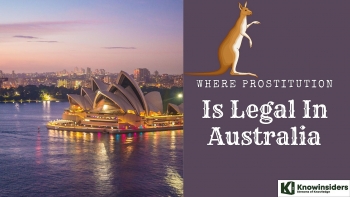 Where Prostitution Is Legal In Australia? Where Prostitution Is Legal In Australia? Prostitution in Australia (Sex work in Australia) is governed by state and territory laws, which vary considerably. |























